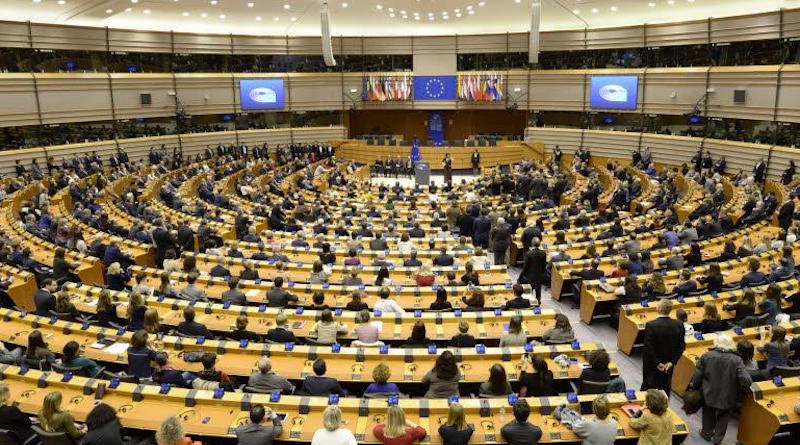Parliament sets out its vision for the future of Europe
If the EU is to boost its capacity to act, restore citizens’ trust and make the euro zone economy more resilient to outside shocks, it needs to make full use of the Lisbon Treaty. But to go further, it needs to reform itself more fundamentally. This was the key message of three resolutions exploring the future development of the European Union approved by Parliament.
The first resolution, drafted by Mercedes Bresso (S&D, IT) and Elmar Brok (EPP, DE) focuses on making the most of the existing Lisbon Treaty. It proposes, inter alia, that:
– the Council of Ministers should be turned into a genuine second legislative chamber, and its configurations into preparatory bodies similar to Parliament’s committees,
– each member state should present at least three candidates, including both genders, for the role of “its” Commissioner,
– the Council should switch completely to qualified majority voting, wherever this is possible under the treaties, to avoid blocking important draft laws and speed up the legislative process, and
– a permanent Council of Defence Ministers should be set up to coordinate the member states’ defence policies.
“The European Union doesn’t need a populist revolution. It needs peace and to adapt to the necessities of our time. This means coping with democratic challenges, providing citizens with social, fiscal, and ecological protection, defending their right to safety in a very degraded international context and delivering on our moral obligations to our neighbours,” said Bresso.
“Citizens expect solutions from Europe, and they are angry because they do not see answers being delivered. This is evident in a time with many challenges, but there are many problems that can only be solved together. The Lisbon Treaty offers plenty of possibilities for making the EU more efficient, accountable and transparent, which have not yet been tapped”, said Brok.
The resolution was approved by 329 votes to 223 with 83 abstentions.
The second resolution, by Guy Verhofstadt (ALDE, BE), looks at ways to move further than the current toolbox allows and suggests various reforms of the Lisbon Treaty, in the areas of economic governance, foreign policy, fundamental rights and transparency. In it, MEPs:
– suggest creating an EU finance minister and giving the EU Commission the power to formulate and give effect to a common EU economic policy, backed up by a euro-area budget,
– reiterate that the European Parliament should have a single seat,
– propose reducing the size of the College of EU Commissioners substantially, including by cutting the number of Vice-Presidents to two, and
– state their belief in allowing EU citizens in each member state to vote directly on the European political parties’ lead candidates for Commission President.
“These reports give the blueprint of what a more perfect Union should look like. They do not propose European integration for the sake of it. Once these reports are adopted, the question is: what is the way forward? I know we can have a strong, powerful, respected European union and at the same time have flourishing local and national democracies. In fact, I believe the one is not possible without the other”, said Verhofstadt.
The resolution was approved by 283 votes to 269 with 83 abstentions.
In the third resolution, Reimer Böge (EPP, DE) and Pervenche Berès (S&D, FR) propose bringing the euro area economies closer together and making them more resilient to outside shocks. They outline a convergence strategy funded by a specific euro area budget, financed by its member states and available under clear conditions. Key proposals include:
– a fiscal capacity consisting of the European Stability Mechanism (ESM) and specific additional budgetary capacity for the euro area, funded by its members as a part of the EU budget,
– a European Monetary Fund (which should gradually develop out of the ESM) with adequate lending and borrowing capacities and a clearly-defined mandate to absorb economic shocks,
– a convergence code: five years to meet convergence criteria on taxation, labour market, investment, productivity, and social cohesion, and
– governance: a bigger role for the European Parliament and national parliaments, merging the functions of Eurogroup President and economic and monetary affairs Commissioner, plus a finance minister and treasury within the European Commission.
“Stabilizing the Eurozone would be in the interests of the European Union as a whole. Our proposals will therefore lay the basis for any further negotiations with the other European institutions. International Monetary Fund experts have also responded positively, showing great interest in our ideas”, said Böge.
“Sixty years after the Treaty of Rome was signed, the spirit of the European Union’s founding fathers needs to be reignited. Creating a budget for the euro area would be a big step towards this goal, at a time when the need to preserve the euro’s integrity has never been more urgent. By delivering solidarity to member states facing an exceptional crisis, absorbing macroeconomic shocks that can affect the euro zone as a whole and promoting upward convergence, such a tool could make the most of the currency, while helping to achieve full employment within the Union”, said Berès.
The resolution was approved by 304 votes to 255 with 68 abstentions.
All these proposals are part of a package that aims to clarify Parliament’s position on the future of the EU, in time for the 60th anniversary of the Treaty of Rome.




